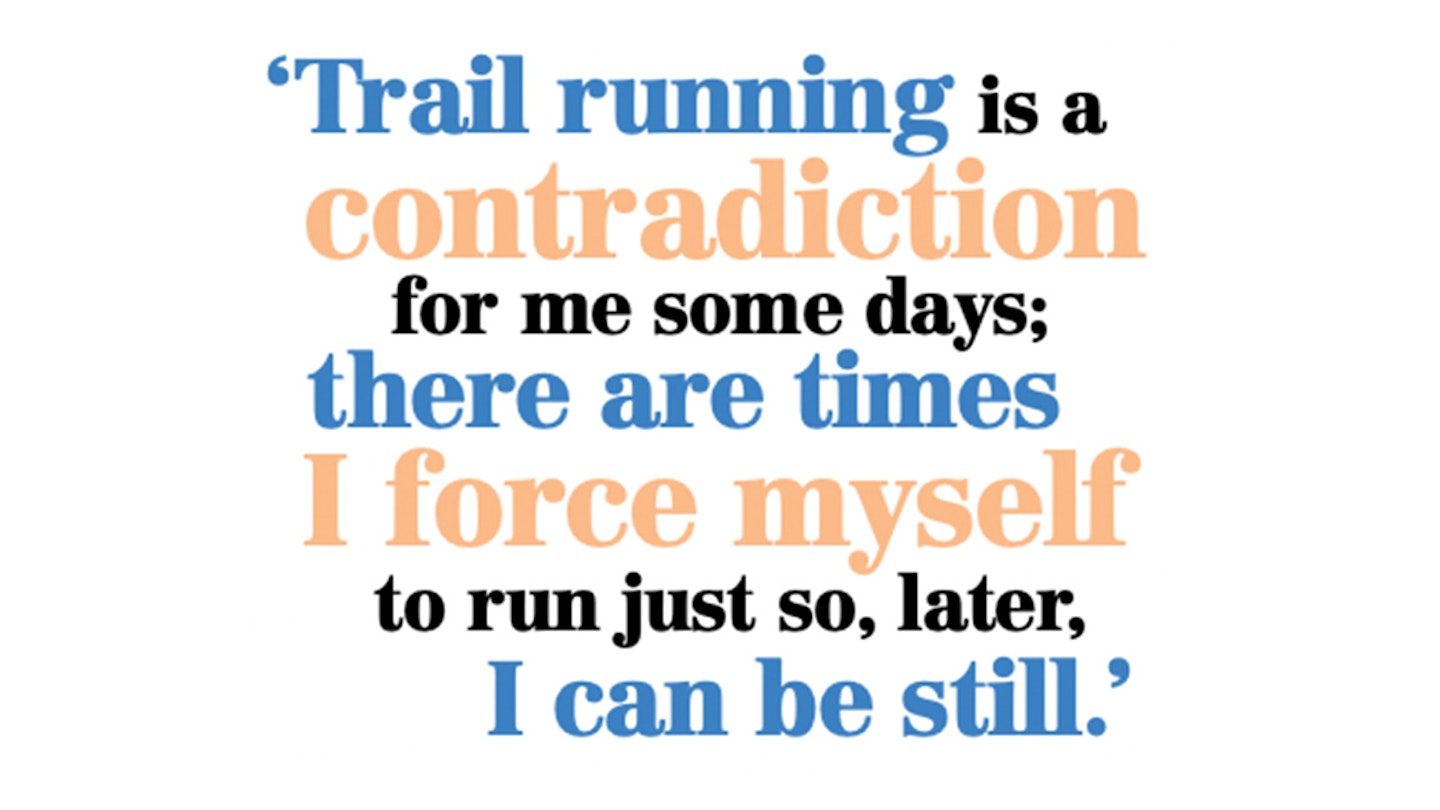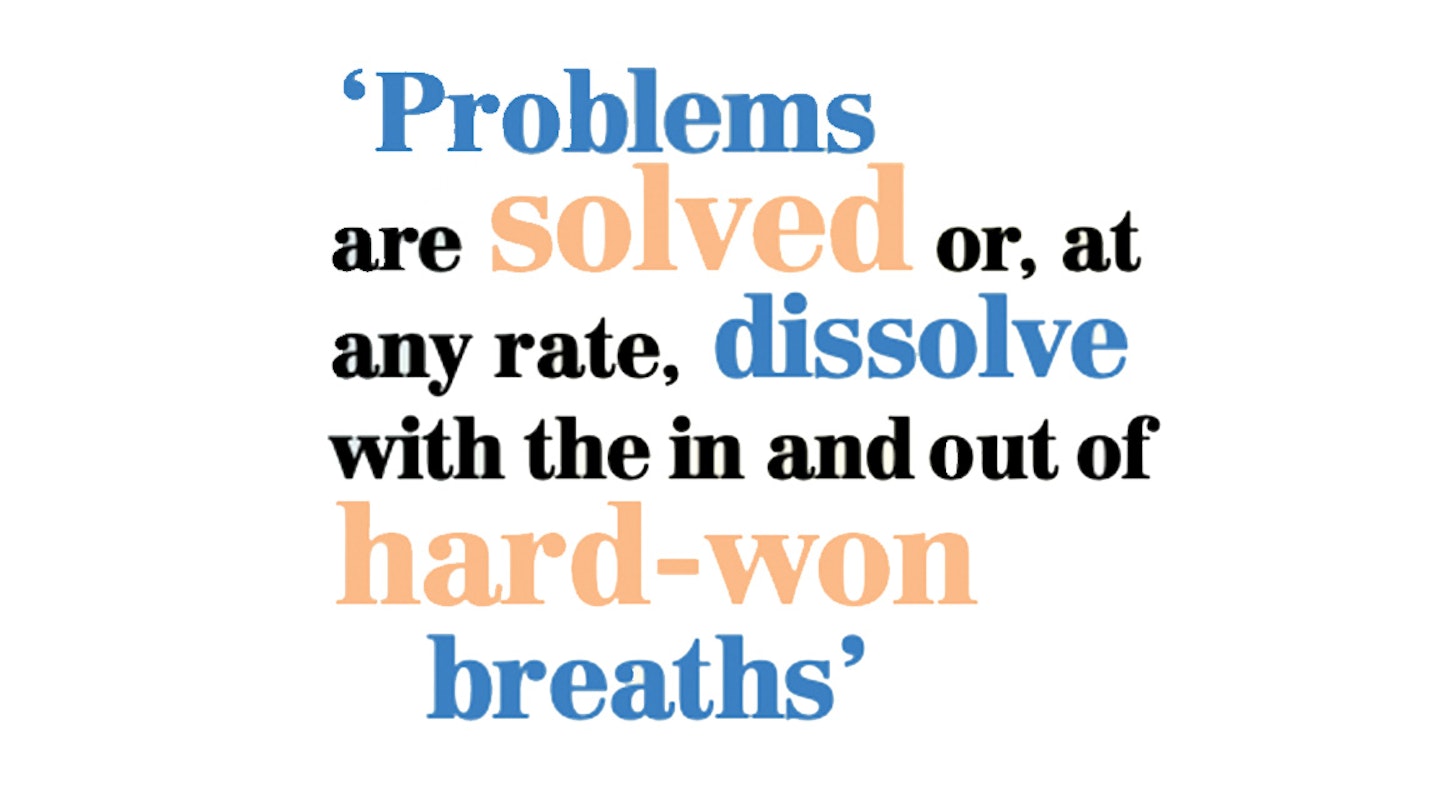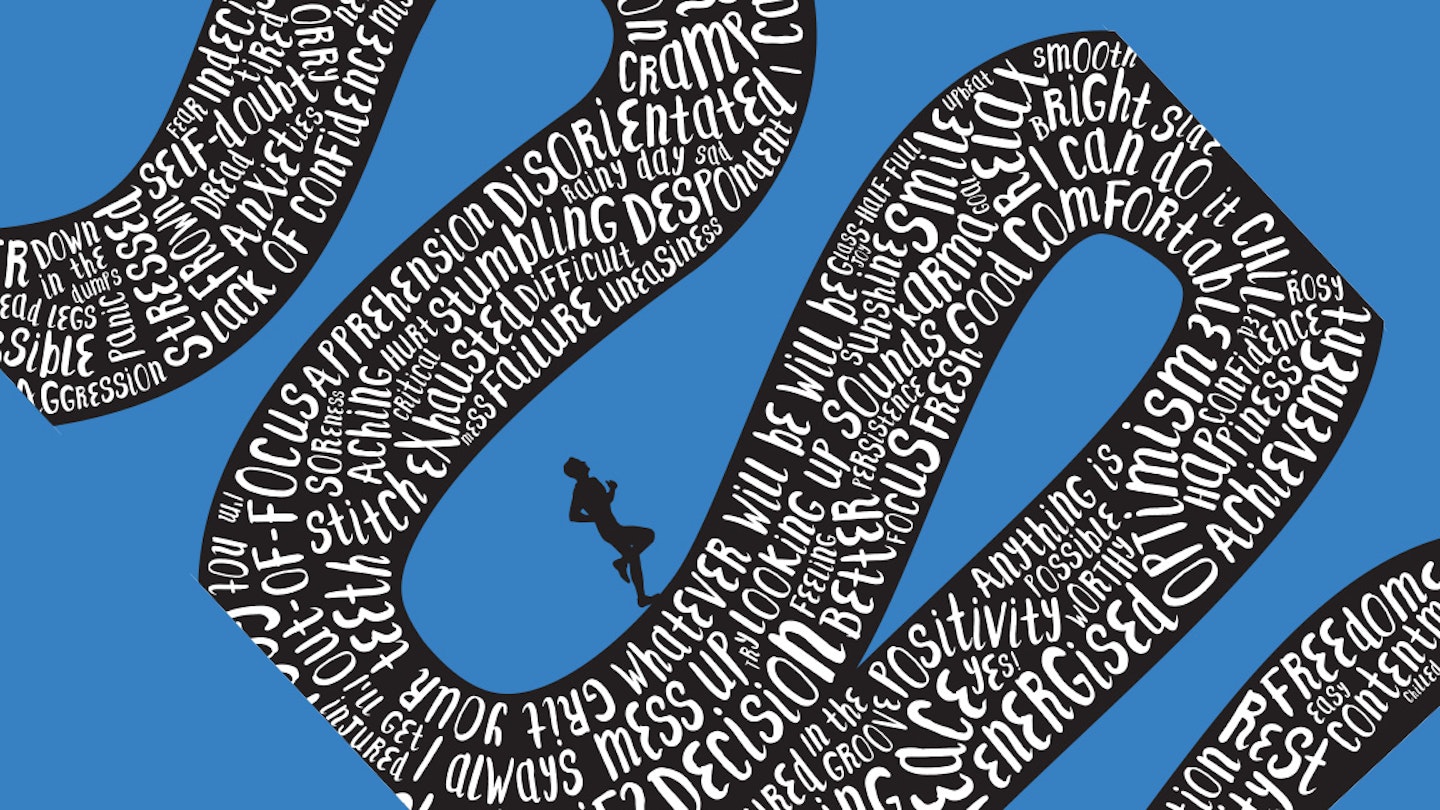It was GM Trevelyan who said, “I have two doctors: my left leg and my right leg.” Although I’ve long been a believer in exercise as pre-emptive medicine, recently I’ve become more mindful of the mental benefits of trail running.
We all know that running and exercise help keep the doctor away, but what about the other type of doctor? The one that people talk about less frequently. What about a doctor for the mind?
Run mindful miles
"The hills are my church, they’re where I go to heal my hurts,” says champion trail runner Ricky Lightfoot. At first I thought: ‘Blimey, Ricky must have a lot of hurts’. But, joking aside, most of us do take a huge amount of emotional enrichment or repair from getting into trail running.
I have friends who run to zone out. Simply to gain peace and quiet away from the noise of family and stresses of work. Others use their time running to do their daily mental ‘admin’. That's making decisions that might range from mundanities like prioritising chores, to career choices. While for others running is something between a meditation and a therapy; a panacea that can help with stress, grief and loss.
I asked Ricky what he meant in that quote. Turns out it’s a paraphrased lyric from a Faithless song. But he kindly expanded for me. “To me, the fells are a place of worship – it’s where I go to de-stress and have thinking time. Literally anything and everything goes through my head when I’m up there. And the good thing is no one questions me or says it’s wrong.”
Zone out
I asked some more of my trail running friends: ‘What do you think about while you run?’ Amusingly, the first one to answer me said, “Nothing. I’m either listening to a podcast or an audiobook to learn French.” Dead end there then!
Of course, we all have friends that run listening to music or Strava updates but, thankfully, others were more forthcoming. My mate Tom’s reply is encouraging: “On occasion I can completely zone out and can’t remember what I’m thinking about. Sometimes it’s cathartic to revisit, often in a loop, my thoughts on more important matters.

“At other times the wow-factor of the terrain I’m running in is overpowering any other thought process. Plus, the more technical the ground, the more likely I am to zone in and focus on my movement over it.”
Running pal Brennan adds: “I love trail running because of its simplicity and where it takes me. I really find I can completely switch off mentally and totally relax or clear the mind. I think trail running’s minimal nature helps; feeling at one with the environment I’m in, like I’m part of it all, when out for an hour’s evening blast on the moors means that I’ve more often than not returned with a solution or idea to fix any problem I left behind me at home or at work.”
Spiritual download
The Latin phrase solvitur ambulando – ‘it is solved by walking’ – can easily be applied to trail running. I think also of the explosion in numbers of people doing yoga, so popular in our modern hectic world. Being mindful, in the present, and focusing on the breath; all these things are characteristics of trail running too, with the added cardiovascular benefits and spiritual boost of running through a misty wood, for example.
For me in the past, I’ve used runs on the moor or along the coast path as a sort of distraction – aversion therapy. A way to deal with a relationship break-up, which works in two ways. Firstly, a long wild run is simply a big chunk of time spent when it’s not so easy to text, or message, or call, when you know that you really shouldn’t. Secondly, those hours on the trail do allow you to process the complicated emotions and feelings that can hang over you like a cloud for weeks and months.
Even if, at times during those runs, thoughts of ‘her’ might flood the run, washing over me for long stretches, running (pun intended) over conversations in my head; thinking of cleverer replies that I wish I’d used at the time; never managing to get my camera out fast enough to share with her a picture of a dolphin pod breaching in the bay, or the magic of a small herd of horses briefly trotting alongside me; not being able to share a moment when I’ve startled an entire field of partridges into noisy flight, or caught glimpse of a small starling murmuration…

Why do you run?
But even these wallowing immersions still help in a cathartic and therapeutic way. I loved Libby’s response. She called her answer to my question ‘running to stand still’: “Trail running is like a contradiction for me some days – the times I force myself to run just so that, later, I can be still.
“Sometimes it’s as simple as the need to feel wind or sun or rain on my face, and be awakened. But on darker days I need the rhythm to build until the screech of lungs and thump of heart drown out all other noise. To muffle the myriad questions and demands that gnaw. And in this quiet space that is a by-product of exertion comes clarity. And calm. Here, problems are solved or, at any rate, dissolve with the in and out of hard-won breaths, so insistent that all else is of less importance. Strangely there seems less room for negativity here too, as if the light-headed euphoria forces you to shed weight and shake off black thoughts.”
Whatever the physical mechanism and chemical reaction, it equates to a kind of emotional magic. A magic so precious its worth is immeasurable by even the smartest of running apps. Though this particular calculation is unfathomable by science or technology, it is well appreciated by the runner, who even under times of heavy burden flies light and unencumbered for a while.
All complexity and indecision is stripped away by the reassurance of step following step, breath following breath. On these tricky days it matters little where you run – just that you do. And, afterwards, enjoy the stillness that is your glorious reward.
No regrets
Libby hit on something I hadn’t considered so far – euphoria. Most of us will know the concept that ‘you never regret a run’. Plenty of times we force ourselves out of the door, or churn through the miles like a grinding chore, but it’s much rarer to return home, sweat validated, deliciously tired and think ‘I wish I hadn’t done that’.
This feeling is regularly written off as being caused by endorphins. Endorphins are peptides, which activate the body’s opiate receptors, causing an analgesic effect. The uplifting feeling when these hormones are secreted within the brain and nervous system has a number of physiological functions. One of these is that you feel bloody great! Not to mention strong, thanks to running.
Sole to soul
But the mental benefits of a trail run are way more than those justifiable by science and physiology. It’s not just a chemical high that is happening, or a way to avoid injury. Ricky, Libby, Tom, Brennan and others all mentioned the ‘peace’ that trail running affords us. If you’re going to deliberately use this time to meditate, and focus on the breaths, then you probably need to acknowledge your thoughts as they arise – but set your intention to consciously let them go, and get back to the breath.
These types of runs should be iPod -free and use nature’s rhythms of foot strike, heart beat, breath – and, dare I say it, even the wind in the trees, or bird song (this works well if you’re trying to block out pain too!). Or, why not simply allow your mind to wander, to decide which bill to pay first, what to have for dinner or, moreover, what kind gesture to make to that friend you haven’t replied to for weeks because you’ve been so busy.
Those thoughts obviously need attending to, so let them form and evolve. If you were on a psychiatrist’s couch, I think that’s what they’d tell you. The real beauty of it is that trail running can be whatever headspace we want or need it to be – time spent in a heightened state that feels so necessary in today’s world. Unplugged, yet wired in a different way.
So, what are you waiting for? Lace up your shoes, get out on the trails, and let both your doctors do their work.
